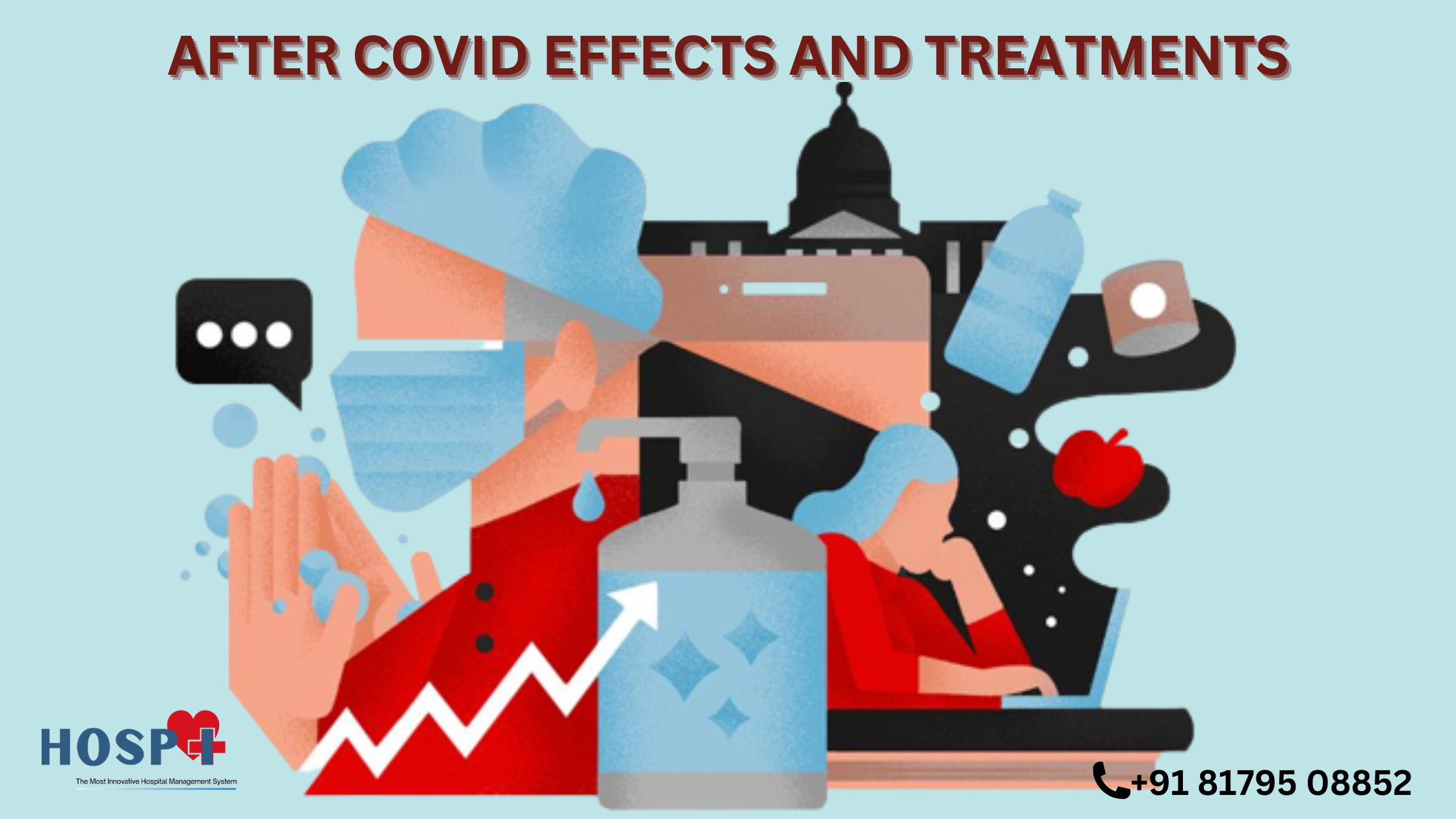Looking to modernize your Hospital, Lab or Clinic?
Hospi is trusted across 25 Indian states for billing, EMR, lab reports, automations & more.
COVID-19 has affected millions of people worldwide, leaving many with long-lasting symptoms and complications after recovery. These long-term effects of COVID-19 are known as post-acute sequelae of SARS-CoV-2 infection (PASC), or long COVID. In this blog post, we will discuss the after-effects of COVID-19 and potential treatments.
- Fatigue
Fatigue is one of the most common symptoms reported by people with long COVID. To manage fatigue, doctors may recommend rest, pacing activities, and gentle exercise. In some cases, medications such as modafinil or methylphenidate may be prescribed to alleviate symptoms. - Shortness of Breath
Shortness of breath is another common symptom reported by people with long COVID. Treatment may involve pulmonary rehabilitation, oxygen therapy, or medications such as bronchodilators. - Cognitive Impairment
Many people with long COVID report cognitive impairment, including memory problems, difficulty concentrating, and brain fog. To manage cognitive impairment, doctors may recommend cognitive behavioral therapy, mindfulness practices, or medications such as modafinil. - Cardiac Issues
COVID-19 can cause heart damage and lead to long-term cardiac issues such as heart failure, myocarditis, and arrhythmias. Treatment may involve medications such as beta-blockers, ACE inhibitors, or anticoagulants, as well as lifestyle changes such as exercise and diet modifications. - Mental Health Issues
The pandemic has also taken a toll on mental health, with many people experiencing anxiety, depression, and other mental health issues. Treatment may involve therapy, medications such as antidepressants or anxiolytics, and self-care practices such as mindfulness meditation and exercise.
Conclusion
Above we have learnt about the After COVID effects and treatments. In conclusion, COVID-19 can have long-lasting effects on the body, and people who have recovered from the virus may experience symptoms and complications for months after their initial infection. While there is no cure for long COVID, treatments are available to manage symptoms and improve quality of life. If you are experiencing persistent symptoms after recovering from COVID-19, it is important to seek medical advice from your healthcare provider to determine the best course of treatment for your specific case. To read some more articles like this, Visit this site: https://hospi.info/blog/
Want a quick walkthrough of Hospi?
We offer gentle, no-pressure demos for hospitals, labs & clinics.
Or call us directly: +91 8179508852


